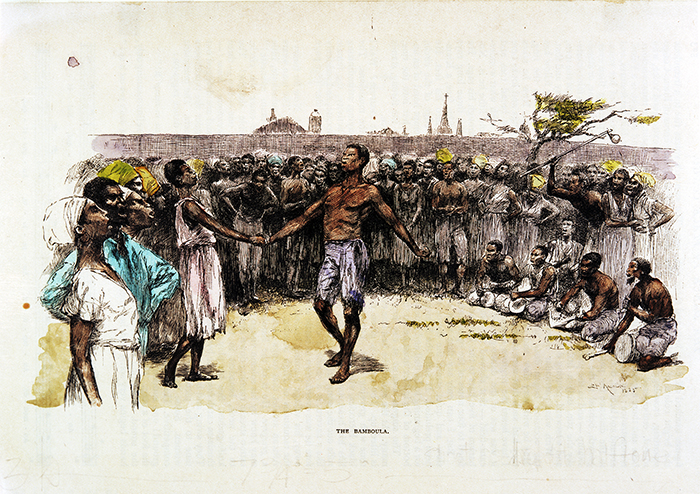What Is Soul Music? The Heartbeat of 20th Cenhttps

Soul music is seasoning for the soul—a rich blend of history and emotion that stirs the heart and moves the feet. Born from the spirituals, gospel, and blues of Black America, soul music embodies the struggles and triumphs of a people, a testament to their resilience and creativity. From the fields of the Mississippi Delta to the vibrant streets of New Orleans, this powerful genre was shaped by the rhythms of Creole culture and the soulful cries of field hollers. As we journey through the evolution of soul, we uncover the stories of Black-owned record labels like Black Swan and Vee-Jay Records, which laid the foundation for musical ownership and identity. Join us as we explore the heartbeat of the 20th century, tracing the legacy of soul music legends who transformed the soundscape and left an indelible mark on the world.
The Roots of Soul Music
Soul music's origins are deeply intertwined with the African American experience, drawing from a rich tapestry of musical traditions. Let's explore the foundational elements that gave birth to this powerful genre.
Spirituals, Gospel, and Blues Origins
Soul music emerged from a powerful blend of spirituals, gospel, and blues. These genres formed the backbone of Black musical expression in America.
Spirituals, born from the harsh realities of slavery, were songs of hope and resilience. They often contained coded messages and served as a form of communication among enslaved people.
Gospel music, evolving from spirituals, brought a more structured and celebratory approach to religious music. It introduced call-and-response patterns and energetic performances that would later influence soul.
The blues, with its raw emotion and personal storytelling, added depth to the soul music recipe. Its 12-bar structure and expressive vocal techniques became integral to the soul sound.
Influence of Slavery and Sharecropping
The history of soul music is inseparable from the African American experience of slavery and sharecropping. These systems of oppression paradoxically fueled the creation of a powerful musical tradition.
During slavery, music became a vital form of expression and resistance. Field hollers and work songs laid the rhythmic and emotional groundwork for soul music.
The sharecropping era that followed emancipation continued to shape the Black musical landscape. The hardships of this system inspired blues lyrics that would later evolve into soul music's themes of struggle and perseverance.
This period also saw the Great Migration, which brought Southern musical traditions to Northern cities, setting the stage for soul music's urban evolution.
New Orleans: The Melting Pot
New Orleans played a crucial role in the development of soul music, serving as a cultural melting pot where diverse musical traditions converged.
The city's unique history, blending French, Spanish, African, and Caribbean influences, created a rich musical environment. Jazz, born in New Orleans, contributed improvisational elements and complex rhythms to the soul music palette.
Creole culture, with its emphasis on celebration and musical expression, infused soul music with a vibrant energy. The city's brass band tradition added a powerful horn section to the soul sound.
New Orleans' food culture, with its emphasis on spice and flavor, mirrors the rich, layered nature of soul music. This culinary parallel often appears in soul lyrics and metaphors.

Rise of Black-Owned Record Labels
The emergence of Black-owned record labels was a pivotal moment in the history of soul music, providing a platform for artists to maintain creative control and cultural authenticity.
Black Swan Records: A Pioneer
Black Swan Records, founded in 1921, was a trailblazer in the music industry as the first Black-owned and operated record label in the United States.
The label was established by Harry Pace, a former partner of W.C. Handy, known as the "Father of the Blues." Pace's vision was to create opportunities for Black artists and to challenge racial stereotypes in the music industry.
Black Swan Records faced significant challenges, including distribution difficulties and financial constraints. Despite its short lifespan, lasting only until 1923, the label set a precedent for Black entrepreneurship in the music industry.
The label's legacy inspired future generations of Black music executives and artists, paving the way for the soul music revolution that would follow decades later.
Vee-Jay Records: Early Innovator
Vee-Jay Records, founded in 1953 by Vivian Carter and James Bracken, became a powerhouse in the early days of soul and R&B music.
The label was known for its diverse roster, featuring blues, jazz, and gospel artists. Vee-Jay's willingness to cross genre boundaries set the stage for soul music's eclectic nature.
Notably, Vee-Jay was the first U.S. label to release recordings by The Beatles, demonstrating the label's forward-thinking approach and international reach.
Despite financial difficulties leading to its closure in 1966, Vee-Jay Records played a crucial role in popularizing soul music and breaking down racial barriers in the industry.
Foundation for Black Music Identity
Black-owned record labels were instrumental in shaping the identity and direction of soul music, providing a platform for authentic Black musical expression.
These labels allowed artists to maintain creative control, resulting in music that genuinely reflected the Black experience. This authenticity resonated deeply with audiences and contributed to soul music's widespread appeal.
By promoting Black artists and executives, these labels created opportunities for economic empowerment within the Black community. This entrepreneurial spirit became an integral part of soul music's ethos.
The success of Black-owned labels challenged the mainstream music industry's racial biases and paved the way for greater diversity in music production and distribution.

Evolution of Soul Music
Soul music's journey from its roots to mainstream success is a testament to its adaptability and enduring appeal. Let's explore the key stages in its evolution.
From Doo-Wop to Gospel Quartets
The transition from doo-wop to gospel quartets marked a significant step in soul music's evolution.
Doo-wop, with its emphasis on vocal harmonies and simple rhythms, laid the groundwork for soul's melodic approach. Groups like The Ink Spots and The Mills Brothers popularized this style in the 1940s and early 1950s.
Gospel quartets brought a more dynamic and emotive style to vocal group performances. Acts like The Soul Stirrers, featuring a young Sam Cooke, bridged the gap between sacred and secular music.
This fusion of styles created the vocal techniques and emotional delivery that would become hallmarks of soul music. The transition also reflected broader social changes, as artists began to explore more secular themes in their music.

Motown's Impact on Soul
Motown Records, founded by Berry Gordy in 1959, revolutionized soul music and brought it to mainstream audiences worldwide.
The label's "assembly line" approach to music production created a polished, sophisticated sound that appealed to both Black and white listeners. This crossover success was crucial in breaking down racial barriers in the music industry.
Motown's roster of legendary artists included Smokey Robinson, Marvin Gaye, Diana Ross, Stevie Wonder, and The Jackson 5. These performers set new standards for vocal prowess and stage presence in soul music.
The label's influence extended beyond music, shaping fashion trends and social attitudes. Motown's success story became an inspiration for Black entrepreneurship and cultural pride.
Stax and Southern Soul Sounds
Stax Records, based in Memphis, Tennessee, developed a grittier, more raw sound that contrasted with Motown's polished productions.
The label's house band, Booker T. & the M.G.'s, created a distinctive sound characterized by powerful horn sections and driving rhythms. This became known as "Southern soul" or "Memphis soul."
Stax artists like Otis Redding, Sam & Dave, and Isaac Hayes brought a new level of intensity and emotional depth to soul music. Their performances often had a live, spontaneous feel that resonated with audiences.
The label's integrated staff and performers, unusual for the 1960s South, reflected soul music's potential for bridging racial divides. This ethos of unity in diversity became a central theme in many Stax recordings.
No comments








0 comments